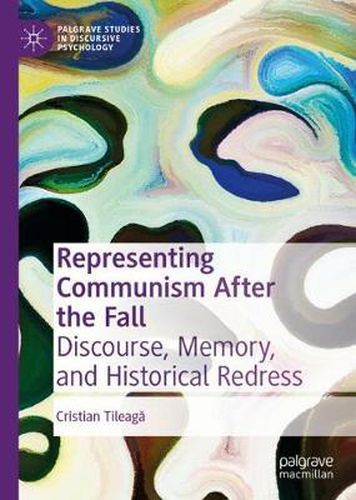Readings Newsletter
Become a Readings Member to make your shopping experience even easier.
Sign in or sign up for free!
You’re not far away from qualifying for FREE standard shipping within Australia
You’ve qualified for FREE standard shipping within Australia
The cart is loading…






This title is printed to order. This book may have been self-published. If so, we cannot guarantee the quality of the content. In the main most books will have gone through the editing process however some may not. We therefore suggest that you be aware of this before ordering this book. If in doubt check either the author or publisher’s details as we are unable to accept any returns unless they are faulty. Please contact us if you have any questions.
This book explores the contribution of discursive psychology and discourse analysis to researching the relationship between history and collective memory. Analysing significant manifestations of the moral vocabulary of the Romanian transition from communism to democracy, the author demonstrates how discursive psychology can be used to understand some of the enduring and persistent dilemmas around the legacy of communism. This book argues that an understanding of language as an action-oriented, world-building resource can fill an important gap in the theorizing of public controversies over individual and collective meaning of the recent (communist) past. The author posits that discursive social psychology can serve as an intellectual and empirical bridge that can overcome several of the difficulties faced by researchers working in transitional justice studies and cognate fields. This reflective book will appeal to students and scholars of transitional justice, discursive psychology, memory studies, and the sociology of change.
$9.00 standard shipping within Australia
FREE standard shipping within Australia for orders over $100.00
Express & International shipping calculated at checkout
This title is printed to order. This book may have been self-published. If so, we cannot guarantee the quality of the content. In the main most books will have gone through the editing process however some may not. We therefore suggest that you be aware of this before ordering this book. If in doubt check either the author or publisher’s details as we are unable to accept any returns unless they are faulty. Please contact us if you have any questions.
This book explores the contribution of discursive psychology and discourse analysis to researching the relationship between history and collective memory. Analysing significant manifestations of the moral vocabulary of the Romanian transition from communism to democracy, the author demonstrates how discursive psychology can be used to understand some of the enduring and persistent dilemmas around the legacy of communism. This book argues that an understanding of language as an action-oriented, world-building resource can fill an important gap in the theorizing of public controversies over individual and collective meaning of the recent (communist) past. The author posits that discursive social psychology can serve as an intellectual and empirical bridge that can overcome several of the difficulties faced by researchers working in transitional justice studies and cognate fields. This reflective book will appeal to students and scholars of transitional justice, discursive psychology, memory studies, and the sociology of change.